If you have been around the health-conscious community for a while, you would have heard of the buzzword “collagen” coming up in discussions a few times. Marketed mostly as a supplement for aging skin, collagen has been touted as the wunderkind of the modern healthy demographic.
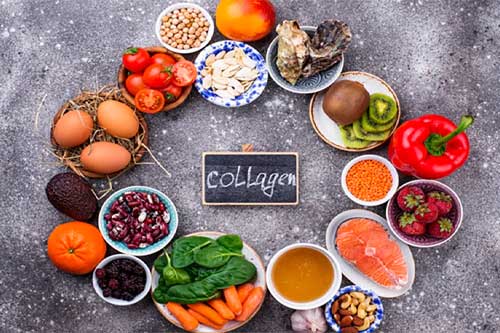
A little research or a simple Google search will let you know that the process of producing natural collagen is a little tricky. Our body has to deploy multiple helpers along the way to assist in the breakdown of this protein, and consequently reap the benefits. In this article, we will be putting plant-based collagen vs animal collagen under the microscope.
In case you haven’t done your bit in looking up collagens, let’s go through the basics first, before we discuss vegan collagen vs animal collagen.
What is Collagen Protein?
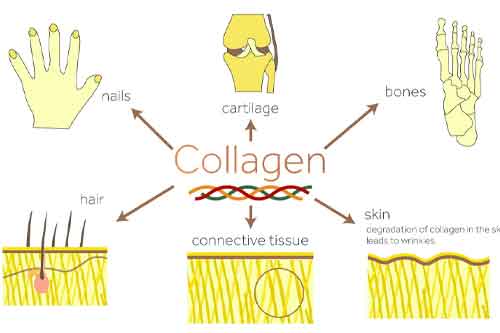
It’s a fact commonly known that the human body produces a slew of proteins to maintain good health. One such protein produced by our body, that has long been touted as a “builder” is collagen. Simply put, collagen plays a vital role in holding the body together. Typically found in our nails, hair, skin, and connective tissues such as ligaments and tendons, collagen facilitates growth.
With age, the human body begins producing lesser and lesser natural collagen, leading to skin sag, brittle bones, stunted growth, joint ache, and similar issues. This gives companies an incentive to market artificial collagen as a savior of old age. While most proteins include near about 20 amino acids, collagen includes but 4 only: proline, glycine, alanine, and hydroxyproline.
A little science lesson here- amino acids form a peptide bond, and their arrangement determines the identity and location of the protein in our body. Unless the peptide bonds are digested whole, the proteins remain unabsorbed and therefore under-utilized by our body. Collagen is built with the digested protein along with vitamins, minerals, and a slew of other important nutrients by these special cells known as fibroblasts.
As we mentioned, the production and subsequent absorption of natural collagen can be a little trickier than simply gulping down more proteins. So, it’s not a surprise that companies have come up with alternatives to natural collagen that work the same, but without depending a lot on your body. That’s where animal collagen and plant-based collagen rear their heads.
What is Vegan Collagen?
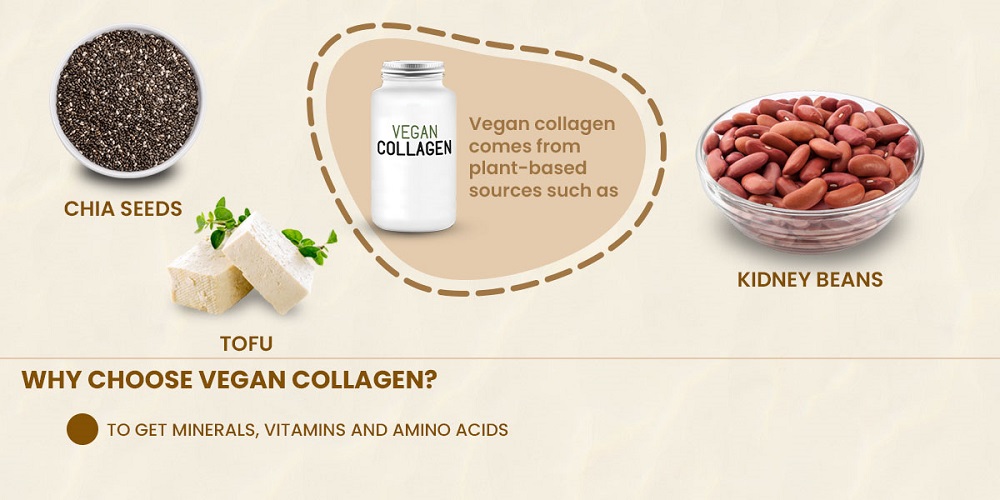
If your body’s collagen production decreases with age, that’s when the question arises: can you get collagen from plants? Well, the short answer is yes! But it is not essentially collagen that we get from plants as vegans. It is rather the key nutrients involved in collagen production inside our body. Testifying this statement, even vegan collagen supplements are transparent about the fact that those give you the nutrients and not collagen protein itself. These plant-based ‘collagen builders’ help our body’s natural production of collagen from scratch.
This is where we need to address something else: collagenase. These are enzymes created by the human body to clean up degraded collagen in our body, in turn making headway for protein synthesis to form new collagen fibrils. Here’s the catch- if you are at risk of bone or joint-related diseases, collagenase might negatively impact the cycle of normal collagen formation and turnover. So, in such cases, having a way to assist our body’s natural collagen production becomes crucial.
Plant-based collagen builders do not include collagen at all; instead, they simply include all the right ingredients that will help trigger your body’s natural collagen production. As for its name, that’s because plant-based collagen is primarily made of herbs, natural plants, and similar sources which include the crucial “building blocks” to facilitate collagen formation, such as:
- Vitamin C from cilantro, lemon fruit, and so on
- Silica, from green beans, bamboo, brown rice, and so on
- Rice peptides
- Biotin
- Vitamin A in the form of ‘beta carotene’
- Hyaluronic acid
Here’s something interesting to note: while plant-based collagen is widely counted as “vegan collagen supplements” due to its exclusion of meat, dairy, or its byproducts, there’s a whole new section of purely vegan collagen that harnesses genetically modified microorganisms such as yeast and numerous other bacteria as a fitting host for the production of collagen and gelatin.
While these are yet to be perfected, and thus yet to be readily available, vegan collagen is certainly a thing of the future. However, if you want to steer clear of genetic modifications in the process of production, it might be a good idea to rely entirely on safe, non-GMO plant-based collagen supplements instead.
What is Animal Collagen?
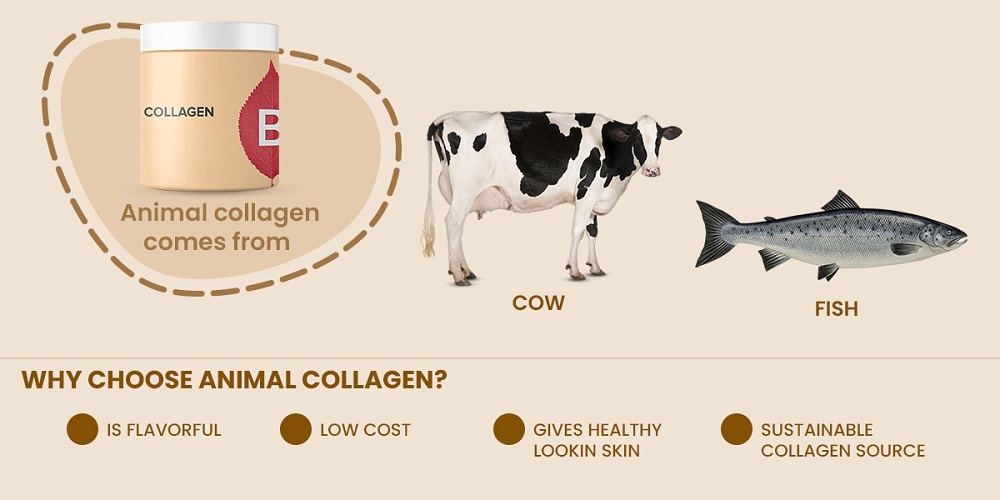
Animal collagen is essentially extracted from the bone, cartilage, and other similar parts of meat featuring connective tissues. These scraps thus collected are then boiled at a high temperature to produce a sticky substance known as gelatin. Process it even further, and you’ll get collagen peptides.
Now, a lot of issues arise here- firstly, when we ingest animal-based collagen protein, our body cannot instantly convert it into absorbable collagen, so the simple intake of animal-based collagen to bring up dropping natural collagen levels will not work. Moreover, animal collagen stands a higher risk of contamination with antibiotics, pesticides, insecticides, steroids, and parabens, since they are stored in animal bones, connective tissues, and muscles. In some cases, heavy metals such as cadmium and lead have also been found in bone broth.
While that doesn’t say much about collagen peptides assisting your body, the source and type of collagen are surely worth consideration.
Factors Leading to Collagen Drop
From what we know yet, our body’s collagen production decreases as we touch our late-20s to early-30s. But did you know that there’s a lot you can do to speed up or even slow down this process? Your hygiene habits, environmental toxins, and such play an integral role in the rate of consistent collagen production.
Here are 5 factors that affect natural collagen production:
1) Smoking
Let’s just say there’s nothing good about smoking apart from the hedonistic pleasure. From early aging to lung cancer, smoking makes everything a little worse. The same holds true for collagen production. The chemicals present in tobacco cigarettes degrade our collagen and elastin production vastly, and moreover, constrict our blood vessels leading to cardiovascular diseases. So, when your blood vessels are constricted, oxygen and blood vessels don’t go where they should. This often results in hair fall and brittle nails.
2) Exposure to UV Rays
One of the most detrimental things to our skin is UV light or UV rays. These rays break down the bond between elastic molecules and collagen, leading to faster aging. Moreover, leaving the cells under the dermal layer entirely exposed to further rays can trigger skin cancer and other serious ailments. So, it’s best to preserve our skin’s protective molecules, collagen and elastin externally through SPF protection, and internally through ample collagen supplementation.
3) Oxidative Stress
This is yet another problem closely related to skin damage caused by the same UV rays. Our skin is basically connective tissue, and our extracellular matrix is very rich in collagen. When it is exposed to reactive oxygen species stemming from environmental pollution, UV rays, and toxins, collagen fibrils (which we spoke about before) break down to cause detrimental changes within the skin cells.
4) Inflammation Related to Chronic/ Autoimmune Diseases
Collagen plays an important role in how we experience chronic and autoimmune diseases. Chronic inflammation limits collagen production in human connective tissues. The tricky part is that only enough collagen is not satisfactory; we need diverse kinds of collagen. That diversity is compromised by inflammation. The good news is that this interconnection between inflammation and collagen formation means collagen supplements can facilitate the prevention of inflammation.
If you suffer from chronic inflammation such as rheumatoid arthritis, the collagen molecules will bind themselves to the therapeutic antibodies in your medication. So, whatever you use to reduce inflammation, it will be made more effective by ample collagen formation.
5) Excessive Refined Sugar Intake
Once again, just like smoking, excessive refined sugar intake never means well for anybody. The way refined sugar is produced creates glycosylation end-products, commonly known as AGEs. Proteins, when exposed to AGEs, become glycated, resulting in disruptions in the repair of skin tissue, and subsequent production of collagen and elastin.
The best way to increase collagen is through diet or/and supplements. Incorporate ample vitamin C-rich citrus fruits in your diet to assist collagen formation. Maintain a healthy and active lifestyle, with ample sleep and exercise to boost your body’s collagen production.
Plant or Vegan-Based vs Animal Collagen
Now that we know the individual meanings of both plant-based collagen and animal-based collagen, let’s juxtapose both to see how they fare against each other. Find below the differences between plant-based collagen vs animal collagen:
Now that we know the individual meanings of both plant-based collagen and animal-based collagen, let’s juxtapose both to see how they fare against each other. Find below the differences between plant-based collagen vs animal collagen:
| Plant-Based Collagen | Animal Collagen |
| This does not actually contain collagen, but refers to plant-based products such as specific herbs that facilitate collagen growth. So, with this you get access to the ingredients that assist rapid collagen production. | This is made of hooves, bones, and hides of bovine animals. The body parts are boiled in high temperatures to produce gelatin, which when heated up further, leads to collagen formation. |
| These contain essential nutrients such as vitamins, minerals, and amino acids which are crucial for our health. So, even if plant-based collagen is not real collagen, it both acts as a catalyst for collagen production as well as serves a greater purpose to our body’s nutritional value. | Since this is actual animal collagen, it means that the contaminants in animal body parts also come with it. Traces of insecticide, pesticide, steroids, and similar toxins, along with heavy metals such as cadmium and lead have been found in animal collagen, which can be transferred to our systems. |
| While our body’s ability to digest plant-based collagen (same holds true for animal collagen) plays a role in whether they will actually work, this kind of collagen includes vitamin C, minerals, and other nutrients which will do more good than harm. | The size of animal collagen prevents its direct entry past the intestinal walls, so in order to digest animal collagen, our body has to first break it down into simpler, more basic ingredients, which can be found in plants. Unlike plant collagen, animal collagen does not add any nutritional value to our diet. |
These are the basic differences between plant-based collagen and animal collagen. While the digestion of both depends on your body’s ability and acceptance of the artificial collagen or collagen builders, if it were up to choice, plant-based collagen will be triumphant over animal collagen any day. This is a significant win for the vegan community.
What Type of Collagen Does Your Body Need?
Remember how we spoke about diverse kinds of collagen? There are no less than 16 kinds of collagen present in our body. Out of those, 85% consists of types I, II, and III. Needless to mention, each has its own function in the body and serves a specific purpose for our betterment.
Here’s a rundown of the different kinds of collagen your body needs:
Type I
This is largely present in your hair, skin, nails, bones, teeth, tendons, ligaments, as well as in the lining of your gut. This kind of collagen contributes to the maintenance of healthy plump skin. They also help in keeping wrinkles at bay. If you want thick, sturdy, shiny, commercial-worthy hair, this kind of collagen is your go-to option. As for where it is best sourced from, marine, vegan, and bovine collagen sources are good options.
Type II
This one is found largely in the cartilage around your body as well as at the back of your eyeball. Type II collagen assists your joints and tissues in bearing mechanical stress and absorbing shock. It also prevents abrasion between bones at the juncture of joints, such as your elbows, knees, and wrists, assisting the bones to move smoothly without emitting weird noises. This one is best sourced from vegan and marine collagen sources.
Type III
This one can also be found in your skin. Type III collagen also makes up a large part of your blood vessel and gut and is used to build muscles. They are best sourced from vegan and bovine collagen sources.
Conclusion
So, when it comes to plant collagen vs animal collagen, the former is a clear winner. Sure, animal collagen has its own set of benefits for actually being collagen, the risks of contamination are not worth it. On the other hand, plant-based collagen builders not only boost collagen formation in our body but also offer the added nutritional benefits of vitamin C and minerals.
Nothing beats natural collagen in our body, but once you are past your prime, it takes some extra support to keep up your good health. That’s where plant-based collagen and animal collagen come into play. Choose wisely, and you will benefit accordingly!
FAQs
-
Which is better: vegan or animal collagen?
Technically, both serve the same purpose of improving the production of collagen. But with plant-based collagen, you get the added benefits of vitamin C and minerals, whereas, with animal collagen, your body struggles to digest it. Simply put, plant-based collagen is the clear winner.
-
What type of collagen is the healthiest?
While our body’s natural collagen is always the healthiest, after a certain age, natural collagen production becomes stunted. When that happens, you get 2 choices: plant-based or animal collagen. Out of the two, the former is more nutritious and serves the same purpose of boosting collagen production.
-
Is vegan collagen any good?
That depends. If you are talking about plant-based vegan collagen builders, yes they do work, and exceptionally so. They are packed with the goodness of earthy herbs which feature vitamin C, essential minerals, and similar helpful nutrients required for our body, even outside collagen formation. If you are looking for purely vegan collagen that harnesses genetically modified microorganisms such as yeast and other such bacteria, you might want to wait around a little more. They haven’t been perfected yet. If you have non-GMO specifications, plant-based collagen is the way to go!


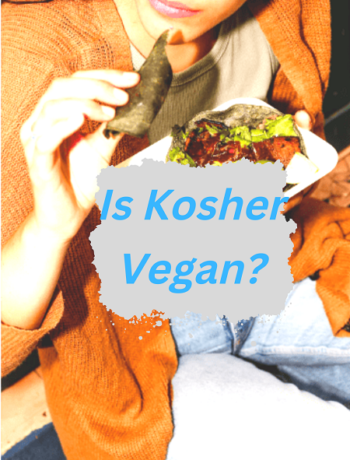

No Comments